2014 Lectures |
|
|
DEC
2
Lunch: 12:00 noon
Lecture: 12:15 - 1:30 pm Hudson Webber Cancer Research Center, Second Floor, Wertz Auditorium
4100 John R. Street, Detroit, MI 48201 Oxidized Glycerophosphocholines for Fun and Profit in Cancer and Immunity
Kampen-Norins Professor and Chair of Dermatology
Indiana University School of Medicine Host: Qing-Sheng Mi, M.D., Ph.D.
Departments of Medicine and Dermatology, Henry Ford Health Systems
|
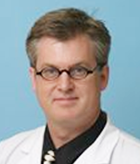
|
|
NOV
4
Lunch: 12:00 noon
Lecture: 12:15 - 1:30 pm Hudson Webber Cancer Research Center, Second Floor, Wertz Auditorium
4100 John R. Street, Detroit, MI 48201 Genetic Analysis of iNKT Cell Development
Associate Member
Immunobiology and Cancer Research Program Oklahoma Medical Research Foundation (OMRF) Host: Qing-Sheng Mi, M.D., Ph.D.
Departments of Medicine and Dermatology, Henry Ford Health Systems
|
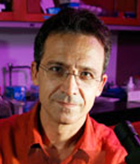
|
|
OCT
7
Lunch: 12:00 noon
Lecture: 12:15 - 1:30 pm Hudson Webber Cancer Research Center, Second Floor, Wertz Auditorium
4100 John R. Street, Detroit, MI 48201 Molecular Signatures Differentiate Immune States in Type 1 Diabetes Families
Professor and Director
Max McGee National Research Center for Juvenile Diabetes Medical College of Wisconsin Host: Qing-Sheng Mi, M.D., Ph.D.
Departments of Medicine and Dermatology, Henry Ford Health Systems |
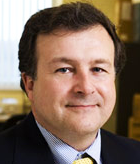
|
|
SEP
2
Lunch: 12:00 noon
Lecture: 12:15 - 1:30 pm Hudson Webber Cancer Research Center, Second Floor, Wertz Auditorium
4100 John R. Street, Detroit, MI 48201 The Gut Microbiome Influences Progression of Ovarian Cancer in Mice
via Th17 and T-Regulatory Cells Assistant Professor of Obstetrics and Gynecology
Department of Obstetrics and Gynecology Perelman School of Medicine University of Pennsylvania Host: Wei-Zen Wei, Ph.D.
Barbara Ann Karmanos Cancer Institute Department of Oncology, Wayne State University |
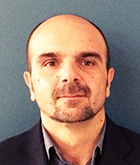
|
|
AUG
5
Lunch: 12:00 noon
Lecture: 12:15 - 1:30 pm Hudson Webber Cancer Research Center, Second Floor, Wertz Auditorium
4100 John R. Street, Detroit, MI 48201 Environmental Exposure and Systemic Autoimmunity
Associate Professor of Molecular Medicine
Department of Molecular and Experimental Medicine The Scripps Research Institute Host: Allen Rosenspire., Ph.D.
College of Pharmacy and Health Sciences
|
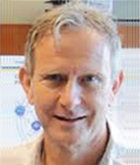
|
|
JUL
8
Lunch: 12:00 noon
Lecture: 12:15 - 1:30 pm Hudson Webber Cancer Research Center, Second Floor, Wertz Auditorium
4100 John R. Street, Detroit, MI 48201 Molecular Markers of Cutaneous T Cell Lymphoma:
Translating Science into Clinical Practice Professor
Department of Dermatology and Skin Science University of British Columbia Director Chieng Genomics Center and Laboratory of Predictive Medicine and Therapeutics Vancouver Coastal Health Research Institute Canada Host: Li Zhou, M.D.
Departments of Medicine and Dermatology, Henry Ford Health Systems |
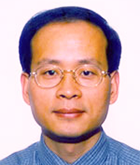
|
|
JUN
3
Lunch: 12:00 noon
Lecture: 12:15 - 1:30 pm Hudson Webber Cancer Research Center, Second Floor, Wertz Auditorium
4100 John R. Street, Detroit, MI 48201 Transcriptional Control of Innate T Cells
Harold L. Paz M.D. Endowed Professor
Chief, Developmental Biology Department of Pediatrics Robert Wood Johnson Medical School Rutgers University Host: Qing-Sheng Mi, M.D., Ph.D.
Departments of Medicine and Dermatology, Henry Ford Health Systems |
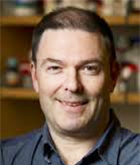
|
|
MAY
9
This event will be held on a Friday in the Department of Chemistry building.
Lecture: 4:00 pm A. Paul Schaap Auditorium, Department of Chemistry, Wayne State University 5101 Cass Avenue, Detroit, MI 48202 Transcription Brings Activation-Induced Cytidine Deaminase (AID) to
Immunoglobulin Variable and Switch Regions Senior Investigator
Section on Antibody Diversity Laboratory of Molecular Biology and Immunology National Institute of Aging National Institutes of Health Host: Ashok Bhagwat, Ph.D.
Department of Chemistry, Wayne State University
|
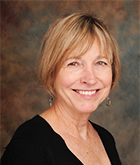 |
|
APR
1
Lunch: 12:00 noon
Lecture: 12:15 - 1:30 pm Hudson Webber Cancer Research Center, Second Floor, Wertz Auditorium
4100 John R. Street, Detroit, MI 48201 Exploiting Autophagy to Improve the Immunotherapy of Cancer
Endowed Chair and Chief, Laboratory of Molecular and Tumor Immunology
Earle A. Chiles Research Institute Providence Portland Medical Center, Oregon Leader, Tumor Immunology Focus Group Knight Cancer Institute Oregon Health and Science University Past President, Society for Immunotherapy of Cancer Host: Wei-Zen Wei, Ph.D.
Department of Oncology, Wayne State University and Barbara Ann Karmanos Cancer Institute Lunch with graduate students, postdoctoral fellows and residents: 1:30 - 2:30 pm
|
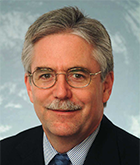
|
|
MAR
4
Lunch: 12:00 noon
Lecture: 12:15 - 1:30 pm Hudson Webber Cancer Research Center, Second Floor, Wertz Auditorium
4100 John R. Street, Detroit, MI 48201 Modulating Innate Immune Responses in the Genital Mucosa
to Facilitate Transport and Biodistribution of Nanoparticle Vaccines
Assistant Professor
Department of Bioengineering University of Washington Host: Joshua Reineke, Ph.D.
College of Pharmacy and Health Sciences, Wayne State University
|
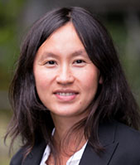
|

|
 Speaker Profile
Speaker Profile